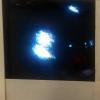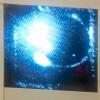During the upgrade process, some local working directories on the CDS file system will still be using the old 1.6 svn version, and others will be using the upgraded 1.8 version. Remember that the two versions are completely incompatible (in both directions).
The CDS workstations now have version 1.8 svn code installed in the default svn location (/usr/bin/svn). To permit running the 1.6 code if and when needed, please create an alias in your .bashrc file
alias svn1.6="/ligo/apps/debian8/subversion-1.6-17/bin/svn"
This is only a temporary work around, eventually all working directories will be migrated to 1.8.
IMPORTANT NOTE: when viewing a 1.6 working directory with a 1.8 svn program, the system may suggest you upgrade the directory using the 'svn upgrade' command.
Please do not do this!
In the upgrade process I am resolving local modification, adding files which should be under config control, and making sure files which are cluttering up the old working directories do not migrate to the new directories.







































I've changed the CDS standard environment such that your default svn client should now be /usr/bin/svn (version 1.8).
If your svn code version does not match that which was used to create the working directory you are in, you will get an error message. The exact message differs for the different combinations of client-code/working-directory versions. In order to understand this, we must first understand the basic differences in the working-directory meta-data layout between SVN1.6 and SVN1.8.
In the old SVN1.6, every directory under the top level directory has a .svn directory. In SVN1.8, the .svn directory only exists in the top level directory, there are none in the lower directories.
If you are running client svn1.6 and looking at a SVN1.8 created working dir, then at the top level the client sees the .svn and sees that it has the wrong version. You get the error message
svn: The path '.' appears to be part of a Subversion 1.7 or greater
working copy. Please upgrade your Subversion client to use this
working copy.
However, if you navigate to lower directories, because they don't have .svn meta-data directories (this is SVN1.8), then client svn1.6 gives the bogus error
svn: warning: '.' is not a working copy
Now onto the second case of running client svn1.8 and looking at a SVN1.6 created working dir. Each sub directory has a .svn dir (this is SVN1.6), so at every level you get the message
svn: E155036: Please see the 'svn upgrade' command
svn: E155036: The working copy at '/opt/rtcds/userapps/trunk/cds_1.6/h1'
is too old (format 10) to work with client version '1.8.10 (r1615264)' (expects format 31). You need to upgrade the working copy first.
(again,please do not do an 'svn upgrade')